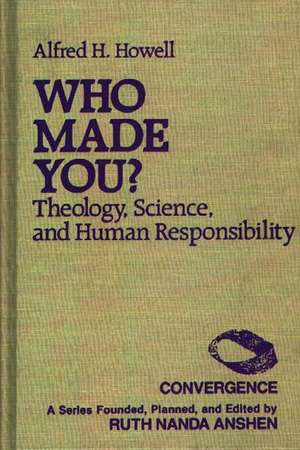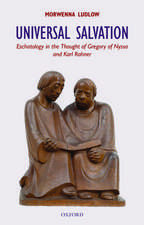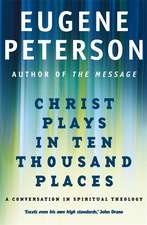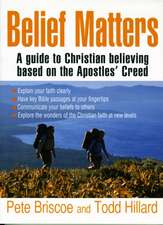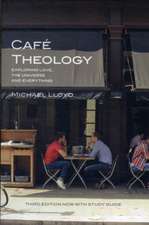Who Made You?: Theology, Science, and Human Responsibility: China Statistics Series,
Autor Alfred H. Howellen Limba Engleză Hardback – 31 iul 1989
Howell's evocative and multifaceted inquiry into man's perceptions of God and truth incorporates discussions of the major world religions as well as the modern scientific disciplines of physics, biology, zoology, neuroscience, and ecology. In his attempt to answer the question Can men learn to live together in peace and harmony? Howell explores the meaning of faith, the nature of the physical universe, the relationship between science and religion, and the misconceptions that have exacerbated wars, persecutions, and other inhumane behavior throughout human history. With his evocative approach, Howell brings fresh light to old questions. Here is science in religion and religion in science on a Biblical and cosmological background. . . . All in all, great erudition and great fun. "Calvin Plimpton, M.D., Emeritus President of Amherst College"
Howell's evocative and multifaceted inquiry into man's perceptions of God and truth incorporates discussions of the major world religions as well as the modern scientific disciplines of physics, biology, zoology, neuroscience, and ecology. In his attempt to answer the question Can men learn to live together in peace and harmony? Howell explores the meaning of faith, the nature of the physical universe, the relationship between science and religion, and the misconceptions which have exacerbated (and in some cases have provided), the sole cause of wars, persecutions and other inhumane behavior throughout human history.
A historian by training, Howell has written an unusually eloquent and shrewd analysis of some of the seminal issues that arise at the juncture of religion and science. He carefully weighs the creation myths versus what science currently tells us and compares and contrasts Darwinian evolution with religious explanations about the development of the human brain and its capacity for rational thought. Howell then moves to a consideration of how and why man developed his various conceptions of the world around him--Deus Universalis, Deus Sapiens--and the changing faces of an anthropomorphic God. Finally, Howell offers a trenchant discussion of the Revelation and issues a call to the individual to decide who made me? Ideal as supplemental reading for courses in the history of religions, philosophy of religion, or religion and science, Howell's work offers revealing new insights into the complex relationships among faith, religion, God, truth, and man.
| Toate formatele și edițiile | Preț | Express |
|---|---|---|
| Paperback (1) | 176.76 lei 6-8 săpt. | |
| Praeger – 8 aug 1989 | 176.76 lei 6-8 săpt. | |
| Hardback (1) | 344.58 lei 6-8 săpt. | |
| Praeger – 31 iul 1989 | 344.58 lei 6-8 săpt. |
Preț: 344.58 lei
Preț vechi: 555.64 lei
-38% Nou
65.94€ • 68.13$ • 54.85£
Carte tipărită la comandă
Livrare economică 19 martie-02 aprilie
Specificații
ISBN-10: 0275932931
Pagini: 200
Dimensiuni: 140 x 216 x 13 mm
Greutate: 0.39 kg
Editura: Praeger
Seria China Statistics Series,
Descriere
Howell's evocative and multifaceted inquiry into man's perceptions of God and truth incorporates discussions of the major world religions as well as the modern scientific disciplines of physics, biology, zoology, neuroscience, and ecology. In his attempt to answer the question Can men learn to live together in peace and harmony? Howell explores the meaning of faith, the nature of the physical universe, the relationship between science and religion, and the misconceptions which have exacerbated (and in some cases have provided), the sole cause of wars, persecutions and other inhumane behavior throughout human history.
A historian by training, Howell has written an unusually eloquent and shrewd analysis of some of the seminal issues that arise at the juncture of religion and science. He carefully weighs the creation myths versus what science currently tells us and compares and contrasts Darwinian evolution with religious explanations about the development of the human brain and its capacity for rational thought. Howell then moves to a consideration of how and why man developed his various conceptions of the world around him--Deus Universalis, Deus Sapiens--and the changing faces of an anthropomorphic God. Finally, Howell offers a trenchant discussion of the Revelation and issues a call to the individual to decide who made me? Ideal as supplemental reading for courses in the history of religions, philosophy of religion, or religion and science, Howell's work offers revealing new insights into the complex relationships among faith, religion, God, truth, and man.
Notă biografică
ALFRED H. HOWELL is a retired banker who graduated from Princeton University in 1934 with an A.B. degree in History. He received his M.A. in Medieval Islamic History in 1976 and an M. Phil. in 1978, both from Columbia University.
